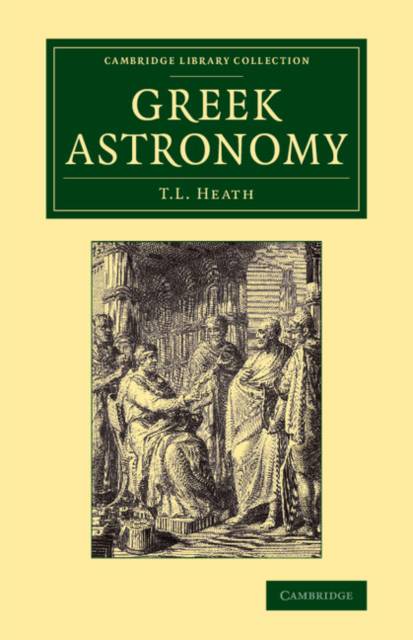
- Afhalen na 1 uur in een winkel met voorraad
- Gratis thuislevering in België vanaf € 30
- Ruim aanbod met 7 miljoen producten
- Afhalen na 1 uur in een winkel met voorraad
- Gratis thuislevering in België vanaf € 30
- Ruim aanbod met 7 miljoen producten
Zoeken
Omschrijving
From its beginnings in Babylonian and Egyptian theories, through its flowering into revolutionary ideas such as heliocentricity, astronomy proved a source of constant fascination for the philosophers of antiquity. In ancient Greece, the earliest written evidence of astronomical knowledge appeared in the poems of Homer and Hesiod. In the present work, first published in 1932, Sir Thomas Little Heath (1861-1940) collects some of the most notable essays and discussions of astronomical theory by Greek astronomers and mathematicians, presenting them in English translation for the modern reader. With chronological coverage, Heath's book features a thorough introduction, a doxography of what ancient authors said about the earliest theorists and longer excerpts exploring fundamental ideas. Among the pieces are extracts from Plato's Republic and Ptolemy's work on the impossibility of a moving Earth, alongside material from Aristotle, Euclid, Strabo, Plutarch and others.
Specificaties
Betrokkenen
- Auteur(s):
- Uitgeverij:
Inhoud
- Aantal bladzijden:
- 256
- Taal:
- Engels
- Reeks:
Eigenschappen
- Productcode (EAN):
- 9781108062800
- Verschijningsdatum:
- 20/03/2014
- Uitvoering:
- Paperback
- Formaat:
- Trade paperback (VS)
- Afmetingen:
- 140 mm x 216 mm
- Gewicht:
- 326 g

Alleen bij Standaard Boekhandel
+ 141 punten op je klantenkaart van Standaard Boekhandel
Beoordelingen
We publiceren alleen reviews die voldoen aan de voorwaarden voor reviews. Bekijk onze voorwaarden voor reviews.











